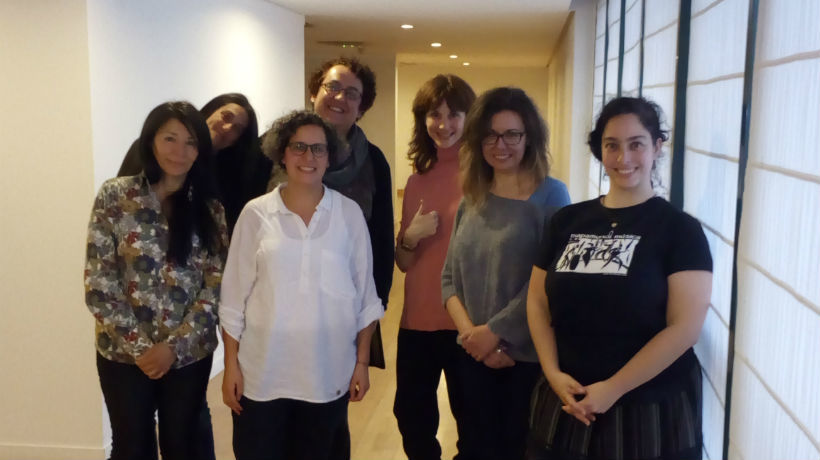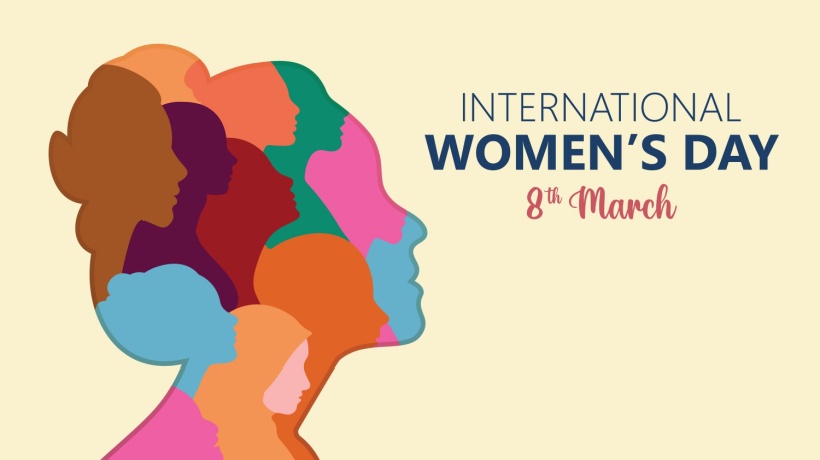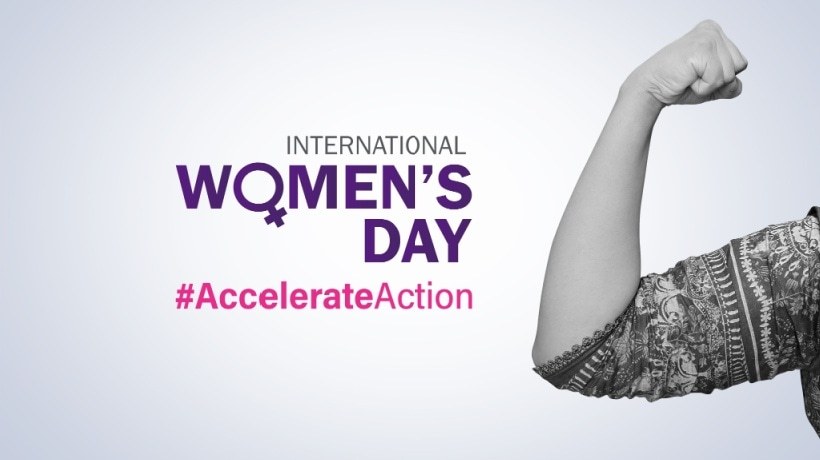An Insight From Women In eLearning Meetup In Madrid, Spain
In the first meetup of Women In eLearning I discovered a team of prepared, smart, and funny women, with a constructive critical sense, defenders of the quality of their work and of the opportunities not only to innovate, but also to adapt knowledge to the student's needs, not training to the business requirements. These were people with very different professional profiles, great preparation, and a common interest: Knowledge without barriers. Here I present the team that I met during the first session:
- Araceli Sanchez: "I am a freelancer in eLearning since 2000. I have also made different approaches; from the more abstract point of view of learning methodology to pure screenwriting, to do instructions for programmers and designers... I have tried all aspects of this process, in a lot of different companies, with ppt, with words, in all formats. I include all subjects that are necessary, because my focus is above the content. Since October 2015 I have a limited company with a contracted person working with me on training projects."
- Belén Casado: "I've been in eLearning since 2011; I started giving classroom training and I discovered eLearning through an expert course at UNED; the truth is that I liked it, I found it interesting. From there, it completely wowed me. I like creating content, it is what attracts me. When I taught classroom training I created my activities, and then I saw that I could digitize it and move it to new technologies. I came looking for innovative ideas, to discuss about eLearning; about how things could be done and are not being done yet."
- Chus Herrero: "I do not know what I am. I've been working for 15 years specifically in training and am a specialist in eLearning; I have touched it from all points of view: Computer programming, Instructional Design, management, planning, modeling, evaluation, tutoring... I like learning from all angles. I don't like talking only about eLearning, but we will see how we can create hybrids. The important thing is to learn; this is what interests me."
- Laura: "I was never dedicated to training; I have been working many years in a telecommunication company. Since 2014 I completely changed my direction and, apart from sociology, I studied sexology. Since 2015, what I do is online workshops selling content. I develop the content, I do the layout, I record it... I do everything with the idea of extending it to something new, with a business-oriented strategy, with the same focus but with different content. I am eager to learn new things."
- Leticia Lafuente: "Today, I manage LearningLovers.org, whose main project is a digital magazine for the dissemination of initiatives that drive innovation and incorporation of new technologies in knowledge. I worked for 13 years as a senior project manager at a consulting online training company. In addition to being an educational psychologist, I have a degree in journalism, and worked for five years in radio, TV, newspapers, and news agencies. I am here to meet other women who are passionate about digital knowledge."
- María Jesús Antón: "I have no idea of eLearning. I worked on a project of the Open University focused on training of trainers in introducing new technologies and then I hooked the subject of digital training. Now I have come to learn about eLearning and to apply it to something that has to do with self-knowledge and communication from the perspective of non-violent communication."
- Yojhana Amorin: "I have been working in training and eLearning since 2013. Many years ago I thought about doing something like this meetup for us to share projects from several companies; it casually occurred that all the people who had had contact were women and this is why I proposed this idea also to Belén. The aim was that we shared the things that were made in the different companies we were working for, because all of us had worked in the same places and that was also curious. However, this initiative did not go ahead, because people were... maybe not afraid, but they did not feel comfortable talking about what each of them were doing in their companies; at the end we were all competition, and at that time it was not as fashionable to collaborate as it is now. Now this vision has changed a bit and that is why I have relaunched the idea."
What These Women Think About eLearning?
During a present chat of an hour and a half in the cafeteria of the Residencia de Estudiantes in Madrid, these eight professionals who participated in the first meetup of Women In eLearning discussed their work, their expectations, their business vision, their demands on quality training, their innovative vision. Following are some of the conclusions that emerged during the event.
About eLearning On Women And Women In eLearning
- Why "Women In eLearning"?
Are we different at any aspect? It is a reality. What we can talk about is not whether there are women in eLearning, but what is the relationship between women and technology that is already taking place. - In Spain, eLearning is a bit small sector.
In addition to Madrid, Barcelona and Andalusia are also doing a lot of online training.
Enterprise Content Development
- In most companies, if you present such a course created with itineraries based on videos from YouTube, they say it's not serious, but then you show them a customized project developed from scratch and they are unwilling to invest. Noone wants to enhance internal knowledge of employees to create video pills, because workers can request to protect their copyright, they can leave the company at any time, they are not professional speakers... etc. There's a huge waste of talent within the company!
- We need to develop specialized content per user groups. Not everything is OK for everyone: The objectives are different, the contents too. However, often the same content is offered everywhere and for everyone. Sometimes you do not know who you're writing content for or you are not specialized in the age of the student, but they request you to do it anyway. Sometimes, the content is going to a particular group of the company that is perfectly identifiable and will assess the quality of that content, and it is not being taken into account.
- Not all countries accept the same type or the same subject of training. The same course does not work the same everywhere.
- The Tripartite Foundation follows administrative criteria for allocating bonuses and subsidies to training, and this affects the way to create the content. We need to get out of that structure.
- For a fiscal issue to close the year, companies also charge courses that cannot be qualified as eLearning.
- Partners in business are not people who know about training. Sometimes the client validates the content forcing you to change anecdotal things on a screen, like a word by its synonym, only to justify their jobs.
- In corporate training, employees are forced to follow a few courses without their interests or their real needs taken into account.
- The level of abandonment of the course can lead to lose a customer. It is necessary to do a communication campaign within the company to publicize training.
- In MOOCs, a high level of dropout occurs. They are intended for people who want to learn and that are constant, but in Spain we are used to the "culture of the stick".
- With real projects, the most important thing is the analysis of the difficulties we've had throughout the project to draw the final conclusions; those are the lessons learned.
- There are already cases of corporate intranets that give open training with courses in technical skills and business subjects. People choose what they want to do and it is very successful.
How Can We Innovate?
- For the entrepreneur, innovation is how to get something cheaper in less time. Before, everything was craft made.
- How to improve learning and not always mulling over the same so that students do not just move from one screen to the next one?
- There is much talk of gamification, which now applies to everything, but do you know someone who really works on gamification?
- In the end, the best thing is designing the course. To create a content, you decide what do you want to say and what the methodology will be, and then you look for technology that responds to your project. If you start looking for technology and then you do the content, quality will erode and will be restricted to previous limits.
- We must end the concept of "swallowing content" and replace it with something that is easy to be processed by the brain. To learn, you need to make an effort, a mental work; if not, you do not learn anything. Student work from the cognitive point of view is enormous in attention, assimilation... but that does not mean that students have to suffer. That effort does not have to be difficult, hard, or little motivating, and everything what is learned must be transferable to other situations.
- At school, everything is done to reward memorization of what is in the book. This also occurs in adult learning. The contents are not well constructed. Learning involves a change of state and this is not provided in the training we have. No learning is being generated, we are just selling courses, positioning training in the market, and we are so used to having such a poor quality of the content that we do not realize.
- We want students to obey, not to choose their own methods of learning. The courses are linear and closed to facilitate monitoring and evaluation. Different learning pathways should be facilitated in order to achieve the same knowledge, but this clashes with the profitability of the project. Closed, self-content courses are being generated. Companies want something tangible, and flexible learning process is not.
- Each person should move according to their favorite style of learning. Now we give the same to all and we measure things like time spent on screen and whether the student has passed a test. Something pending to measure is the change that training exercises in the way an individual works and learns transfer.
- Not always the number of hours of study equals more learning: It also depends on the quality. In the company, there is a lack of educational knowledge and a lack of interest, because it is a business. The moment we step out of formal learning in enterprises, new technologies and new methods open an amazing world.
- Some initiatives of Project Based Learning are being carried out, for example in schools with groups of students to achieve goals set by themselves through a needs analysis of their immediate environment, to solve a close problem. An edition of the course has already been made and it worked: An entire work process has been created, as if it were a project team in a company, and the proposed objective has been reached, offering a solution to the problem detected.
- Projects of virtual reality and augmented reality are also being carried out, as showing kids the seabed with 3D glasses. Ii is an immersive experience where the student is surrounded on three dimensions by fishes, whales, octopuses... If one stares, the characteristics of the animal show at a poster; you learn in a fun way. There is content, but the effort of learning is not something conscious nor hard.
- We must foster collaborative learning: We learn better in society, sharing with other students, because we are social beings. In that issue, technologies have much to contribute, without giving up entirely to classroom training.
- Human communication is linked to the heart. In interpersonal communication, we must enhance the skills of each individual and not "fit them" in strange mechanics. You learn by rehearsing and looking after to analyze the mistakes and correcting them.
- In humanistic training, personal and emotional changes have to arise from the individual himself. In us, a series of learned automatic behaviors are marked on iron. A change of values, of ideas, is very slow. We unlearn very slowly. You cannot use the same Instructional Design to teach this and for teaching how to type.







